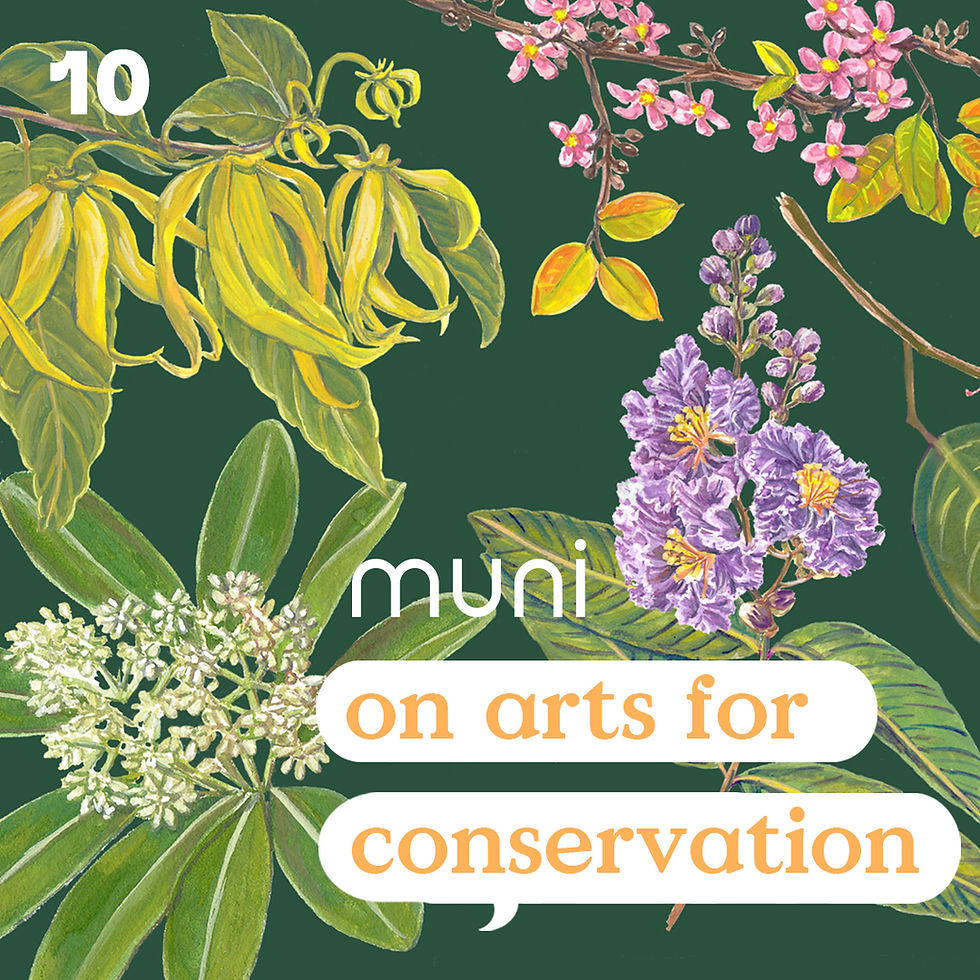Responsible Travel at the MUNI Market 2017
- Team Muni

- Apr 6, 2017
- 2 min read
#MUNIonThis: There are close to 1 billion international tourists in the first 9 months of 2016 alone and the numbers for the first few months of 2017 posted a sustained growth of 8% for Asia and the Pacific. In the Philippines, over 600,000 international arrivals have been recorded for January – a 16% increase from January 2016.
That is 600,000 more people exploring the Philippines just for the first month of the year; fueling the economy, using up resources, taking up space, interacting with locals, and generally leaving their mark (visible or not) in the country.
And we don’t even have numbers for domestic travellers, yet.
The dark side of tourism
While tourism’s contribution (10% of the GDP) to a still largely agricultural economy cannot be contested, there is something that needs to be addressed: the over 600 thousand monthly visitors have negative effects on the country.
Unrestrained tourism can lead to major problems for the environment. Just take a look at neighboring Thailand, who just last year announced the closure of three of its most popular islands for rehabilitation. Or, not to stray away from home, let’s take a look at Mt. Apo, which is closed to trekkers for 5 years after a fire believed to have started from unattended trekker bonfire razed 115 hectares of grasslands.
Added to that, the intrusion of outsiders may (and oftentimes, especially in the case of indigenous communities) disturb the local culture and eventually lead to a loss of tradition and local customs.
Every little thing counts
While the problems that tourism can cause is being brought to the global spotlight, we have a long way to go before policies, infrastructure, and global mindset can work seamlessly together to create sustainable solutions.
That doesn’t mean, though, that we can’t do something about it in our own little way.
Learn more about the many ways we can turn travel from a passive sightseeing exercise into a responsible appreciation of nature and a mindful immersion into culture at the MUNI Meetup on Responsible Travel.
Leading the discussion are four of the brilliant movers of the travel and tourism industry, who seeks to change the way that people travel.
Ann Dumaliang, project officer of the Masungi Georeserve and a National Geographic Young Explorer with the National Geographic Society Asia, currently oversees the trail operations of the geopark. Her advocacy is to establish a UNESCO Geopark in the area as “a multi-disciplinary and sustainable approach to conservation.”
Gela Petines, CEO and COO of Reef Nomads, urges travellers to keep a curious mind during travel, to ask more questions and get to know the world. She believes that people just need to take a longer look and see why it’s worth taking better care of.
Tin Mansinares, provincial tourism officer of the province of Negros Occidental, believes that getting to know the local homegrown businesses in the destinations people travel to goes a long way into championing sustainable tourism development.
Guido Sarreal, managing partner of Trail Adventours, is an advocate of responsible community-based tourism and believes that travelers and guides have a responsibility to ensure minimal disturbance before, during, and after traveling.
Do you have ideas you want to share? Passionate about travel? Join the MUNI Meetup on Responsible Travel on April 9, 3:30-5:00PM, as part of the MUNI Market 2017, by securing your slot here.







Comments